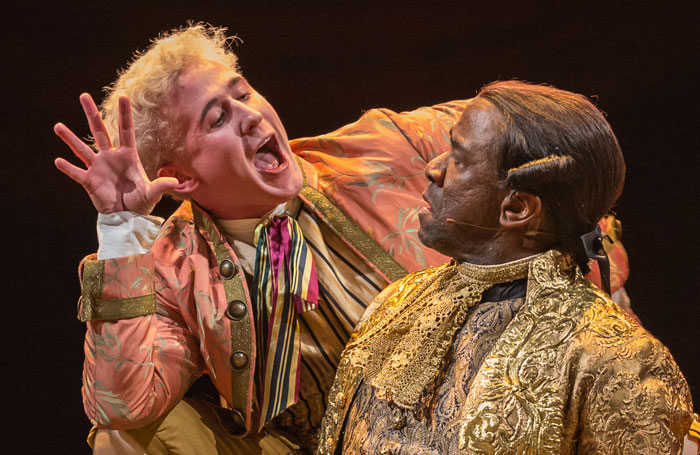In the first few scenes of The National Theatre’s production of Amadeus, I will admit I was somewhat sceptical of what I had come to watch. There was a dumbfounding use of explicitly modern props in a performance that was otherwise largely adherent to the conventions of the period, and there were issues of pace, where the sometimes-sluggish advancement of plot occasionally threatened boredom.
‘There was a dumbfounding use of explicitly modern props in a performance that was otherwise largely adherent to the conventions of the period’
However, my attention could not be wholly diverted; regardless of any issues I took with the opening scenes, there were definite flashes of genius that stirred my enthusiasm, and which built and increased in consistency, and finally resulted in an astonishing second half. Something that contributed to this was that, in the post-interval portion of the play, the orchestra and the staging were finally taken full advantage of. This allowed the dynamism of the storyline and its leading figures to be presented in the vibrant and exciting setting they deserved. The result was a brilliant, vibrant energy, that absorbed the audience and left me thrilled.
‘It was Adam Gillen’s portrayal of Mozart that granted the production the enormous passion and spirit’
The action of the play is driven by Salieri’s narrative, and the gorgeously measured delivery that Msamati brought to it seemed to position his character as the internal director of the onstage action. However, while it was Msamati’s portrayal of Salieri that, in a way, held the whole play together, it was Adam Gillen’s portrayal of Mozart that granted the production the enormous passion and spirit which, for me, made it a success.
Gillen’s portrayal was one that appeared to be a complete possession of his character. He gave astounding, almost superhuman energy, and seemed to pump every ounce of his spirit into Mozart. What this amounted to was a fully realised, humanised, and believable title character, and one which blew me away.
Aiden Alexander
(Image courtesy of Marc Brenner)

